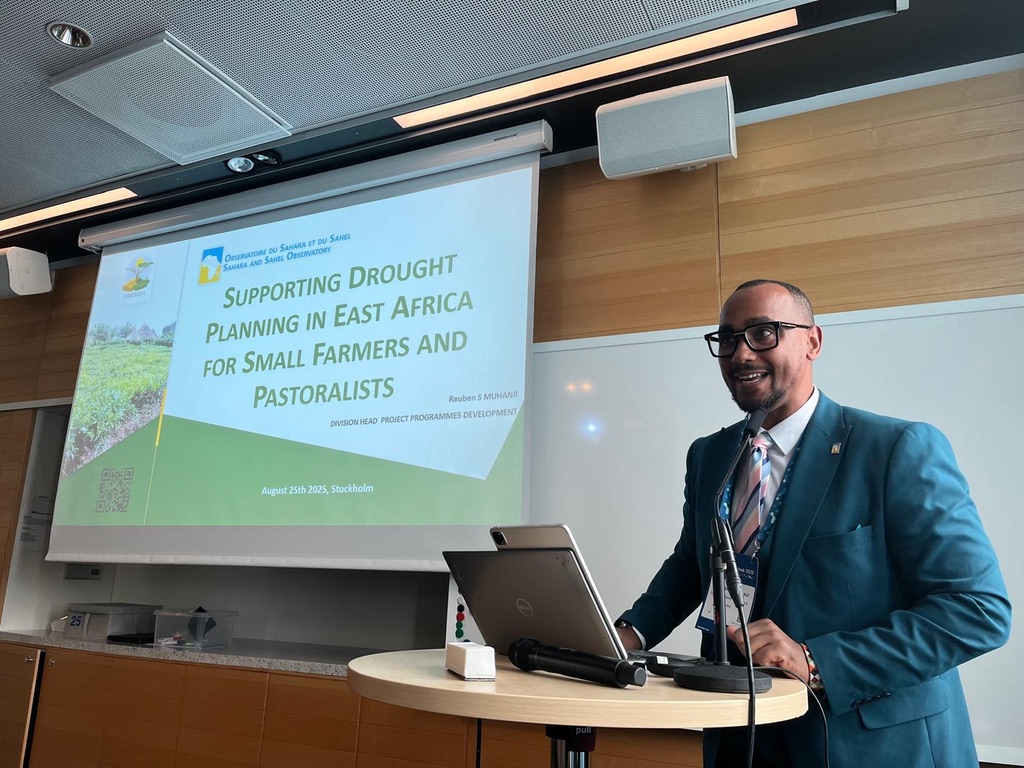
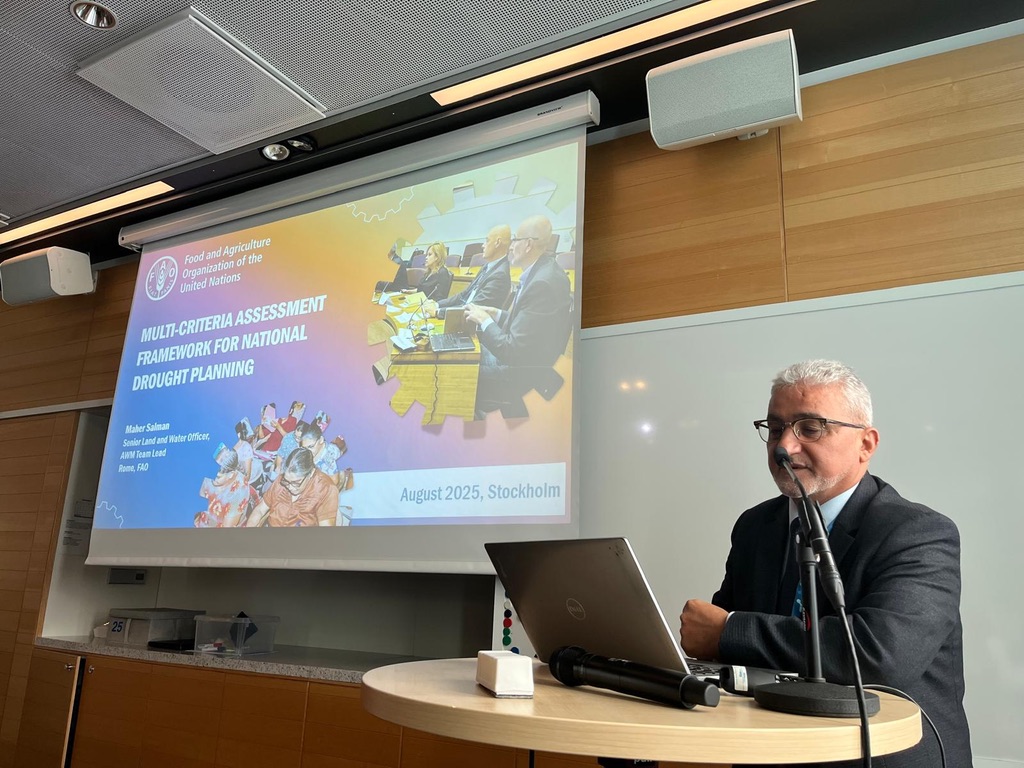
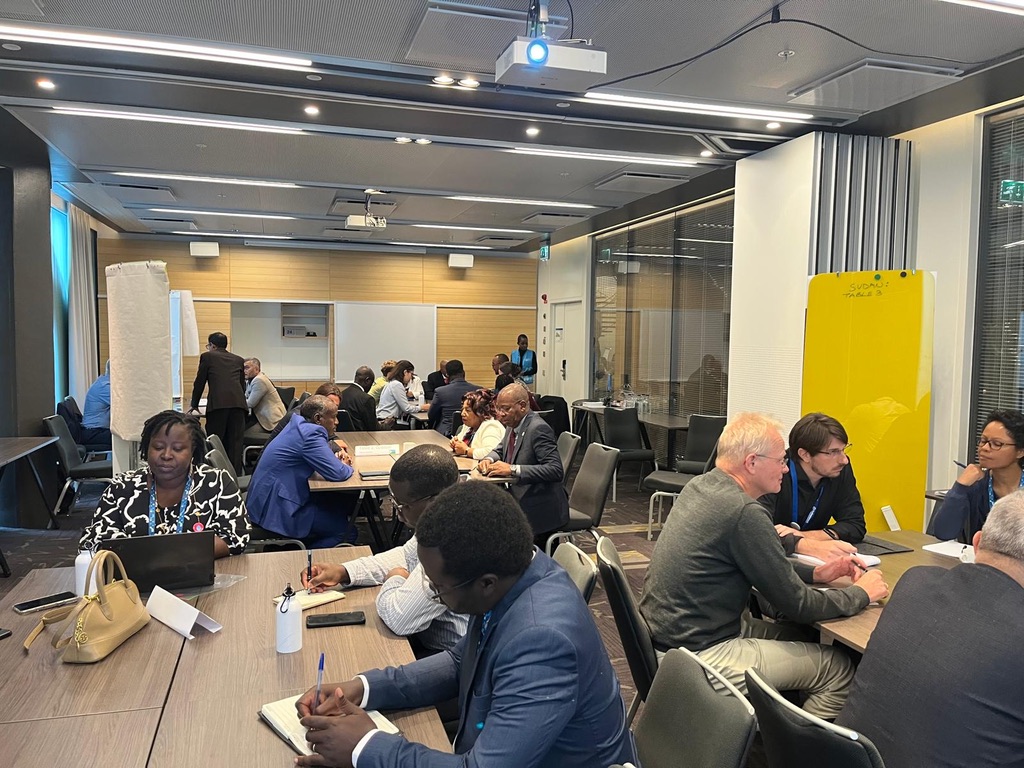
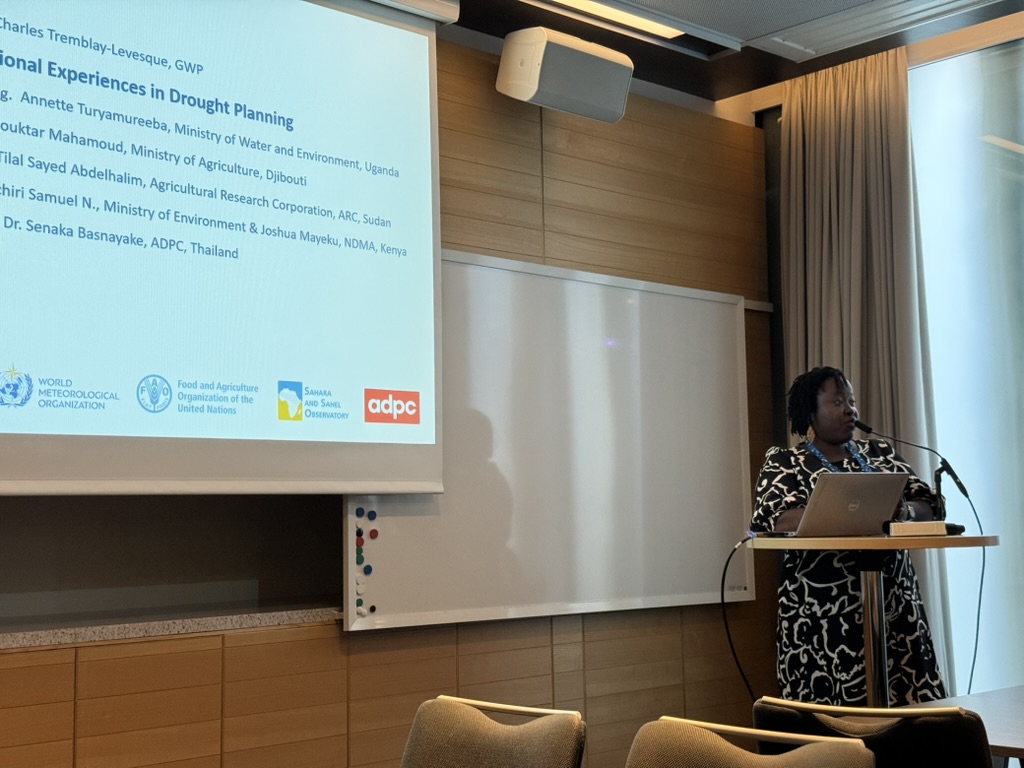
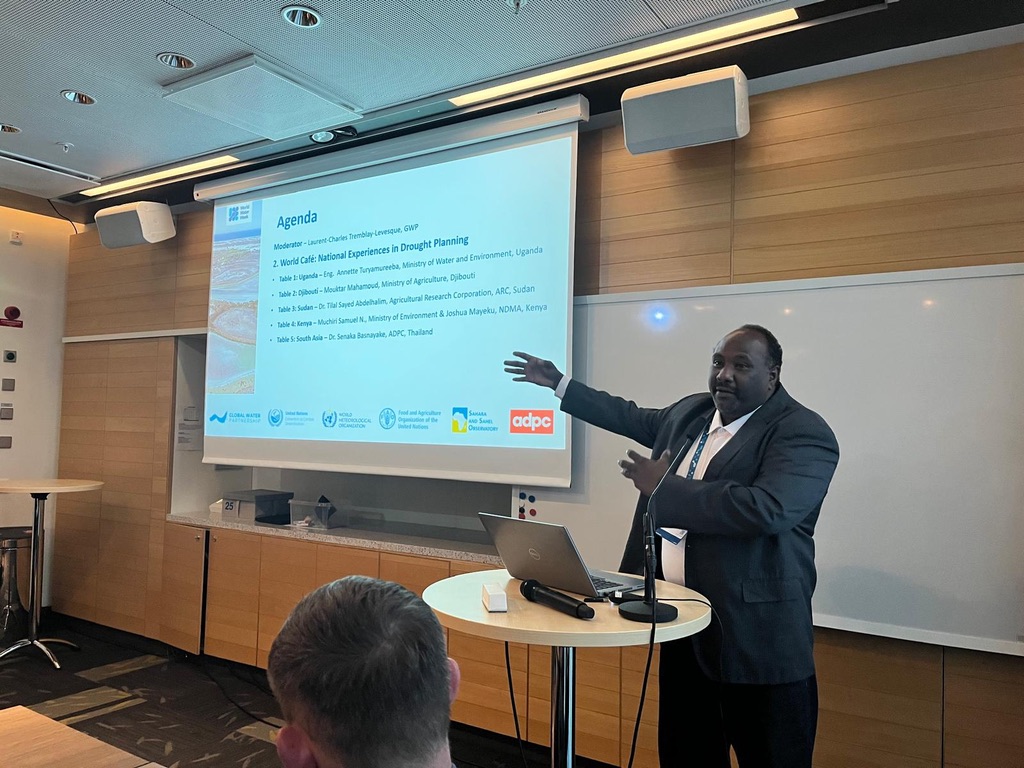
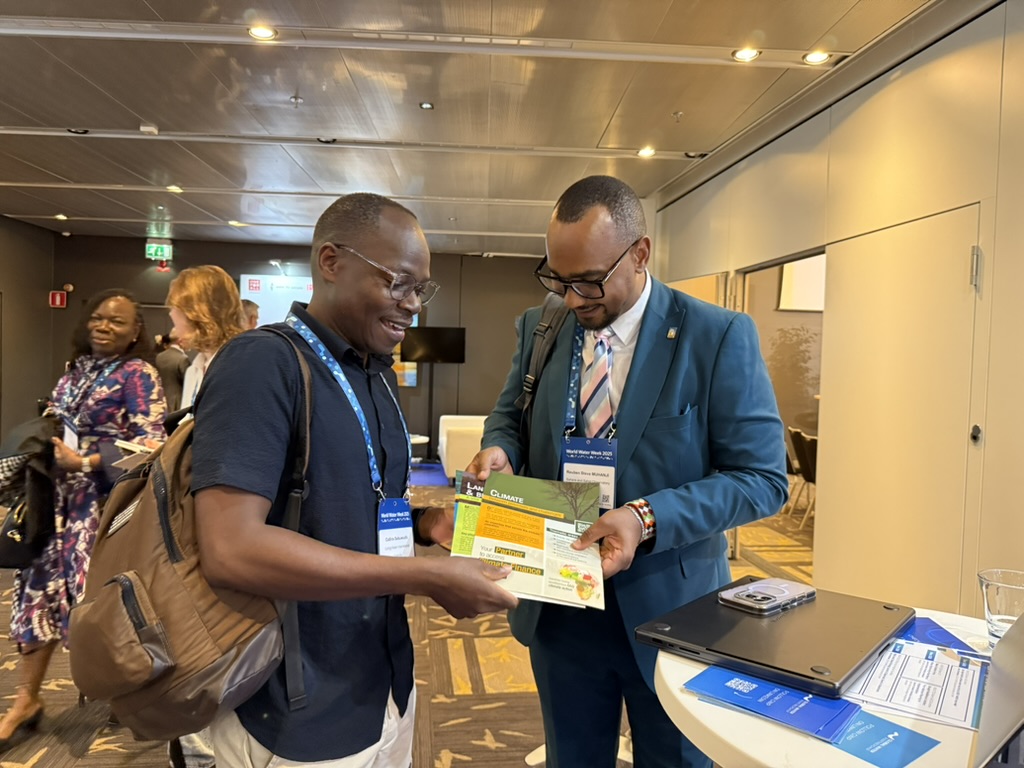
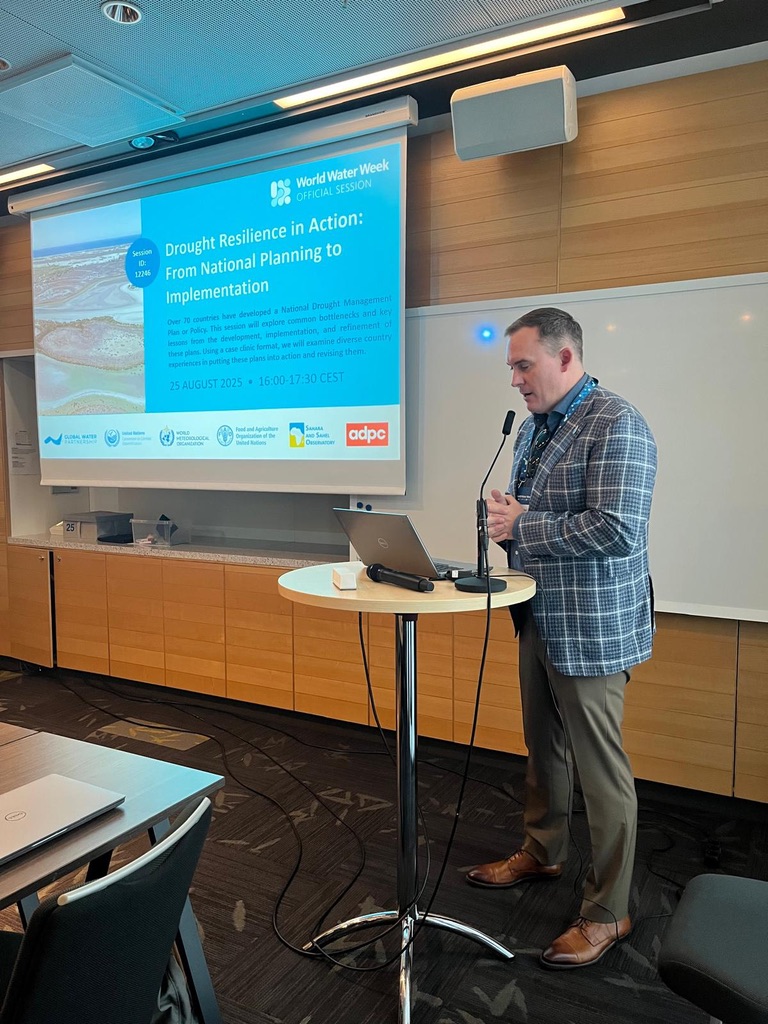
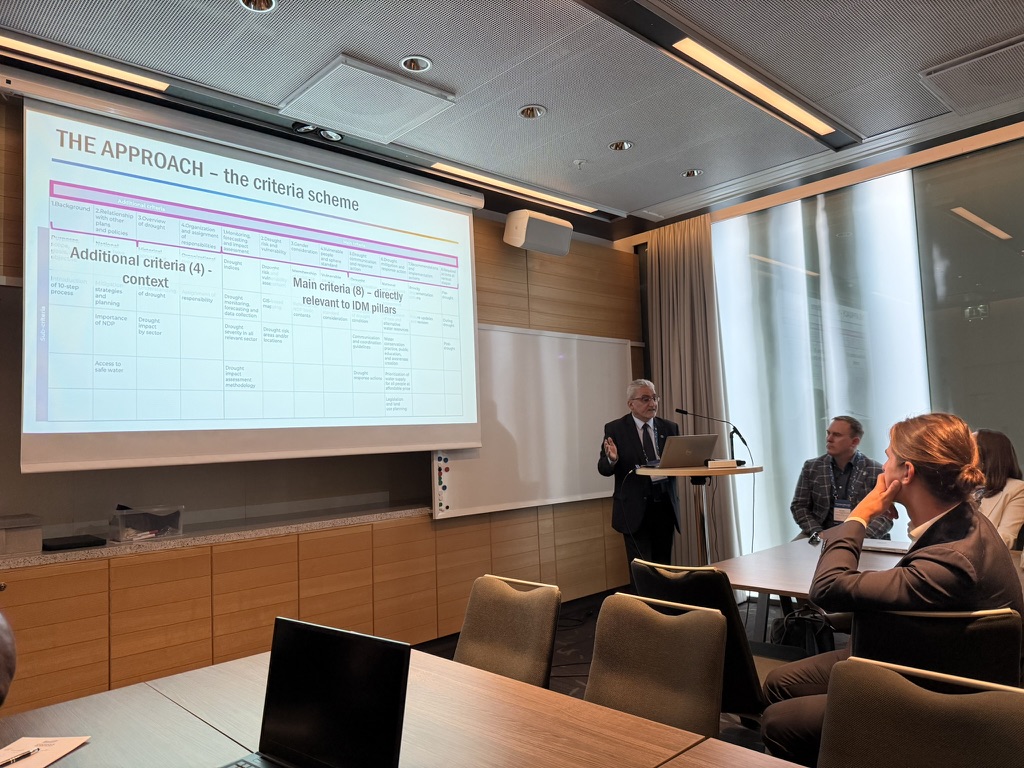
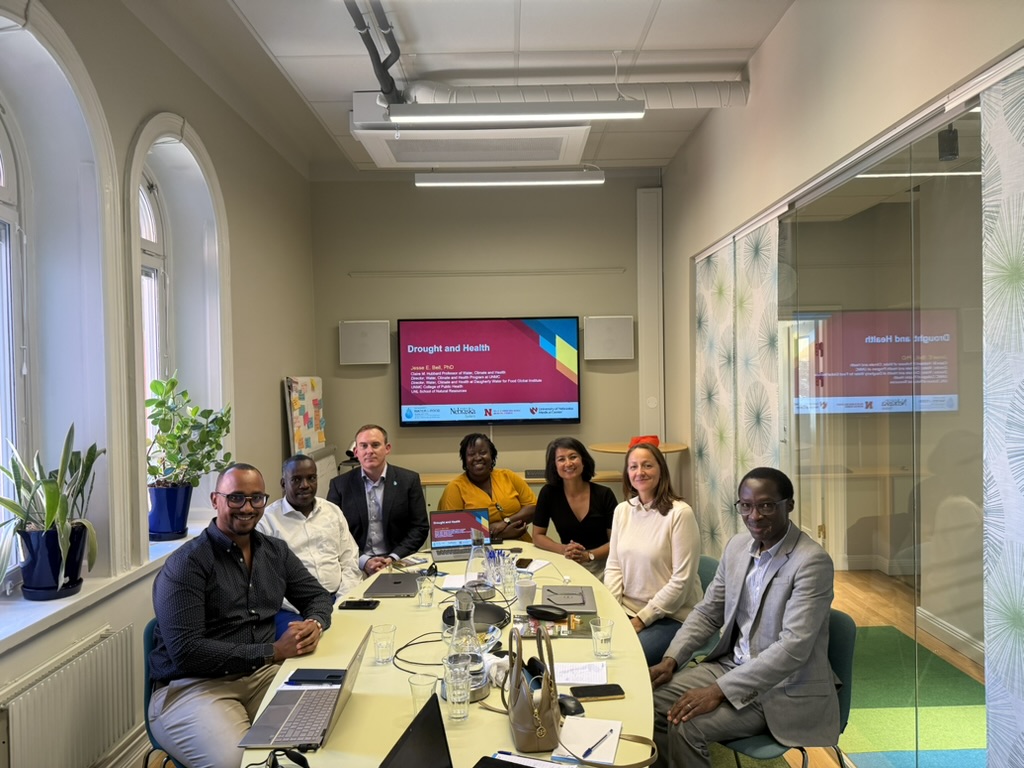
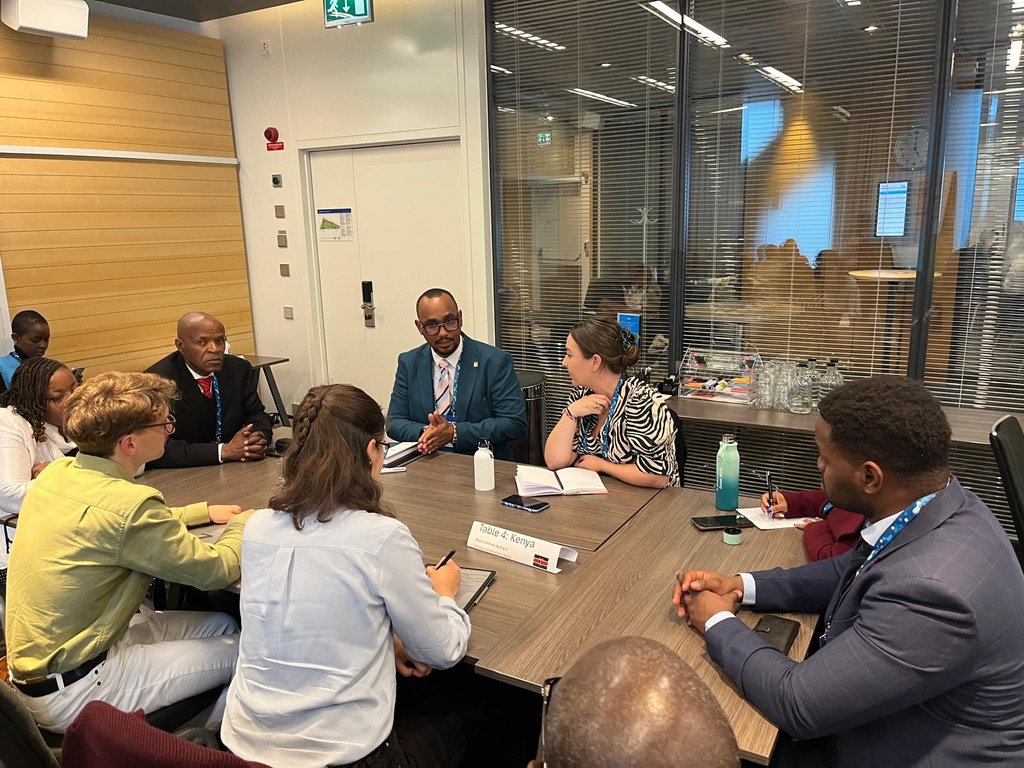
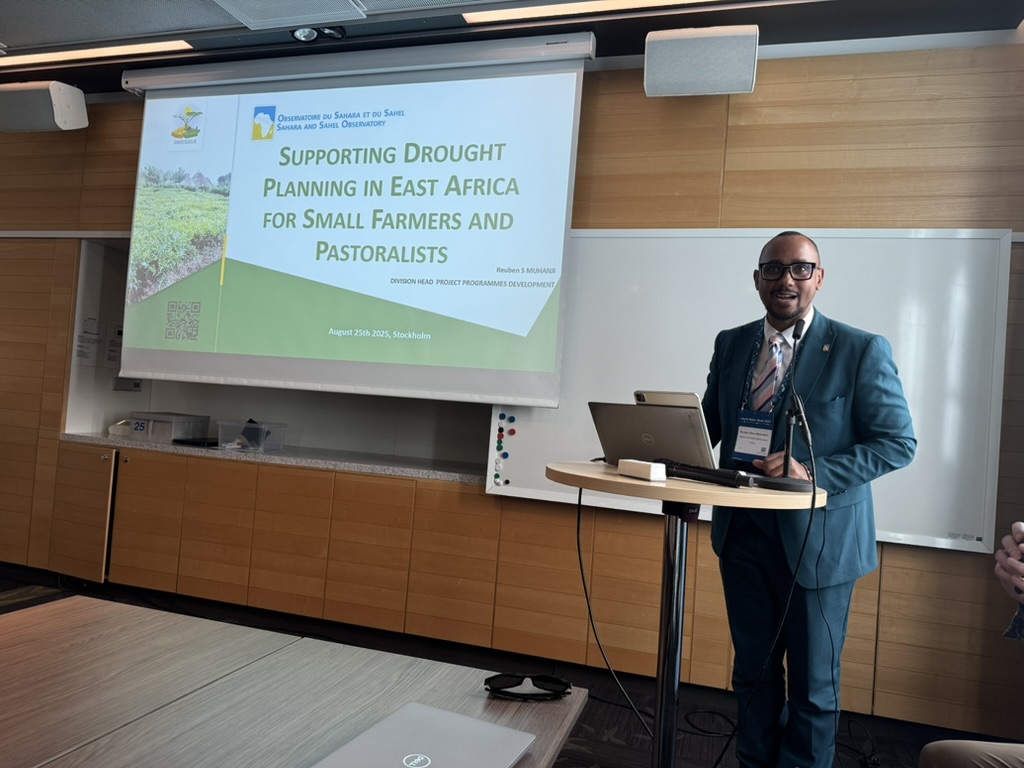
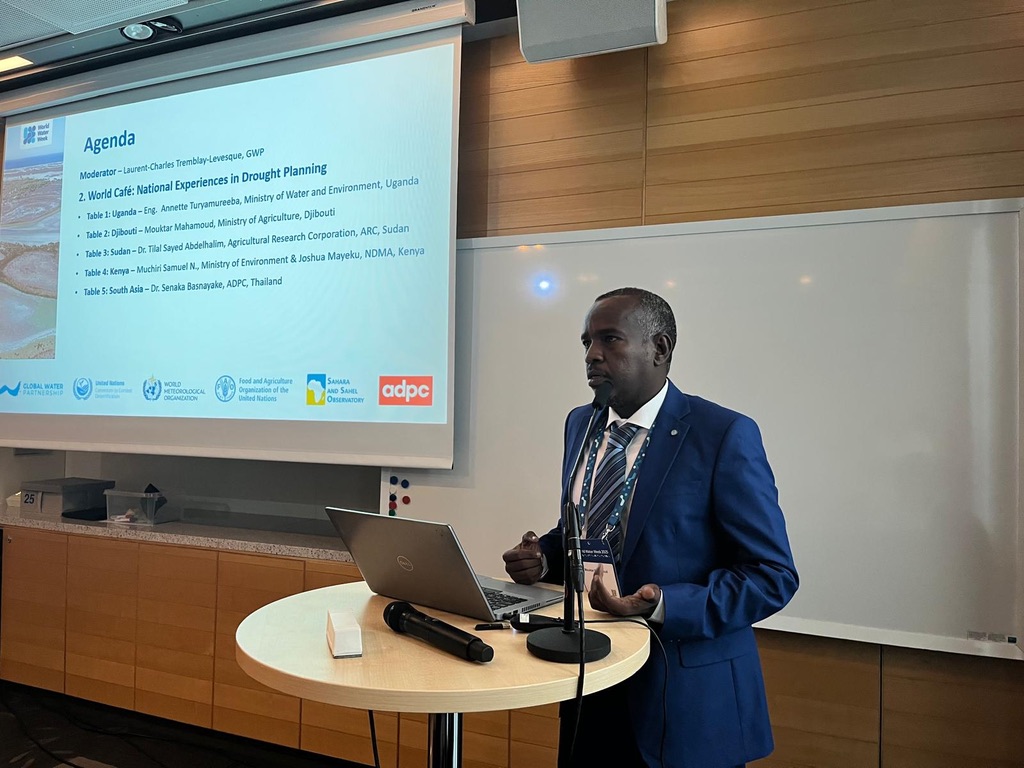
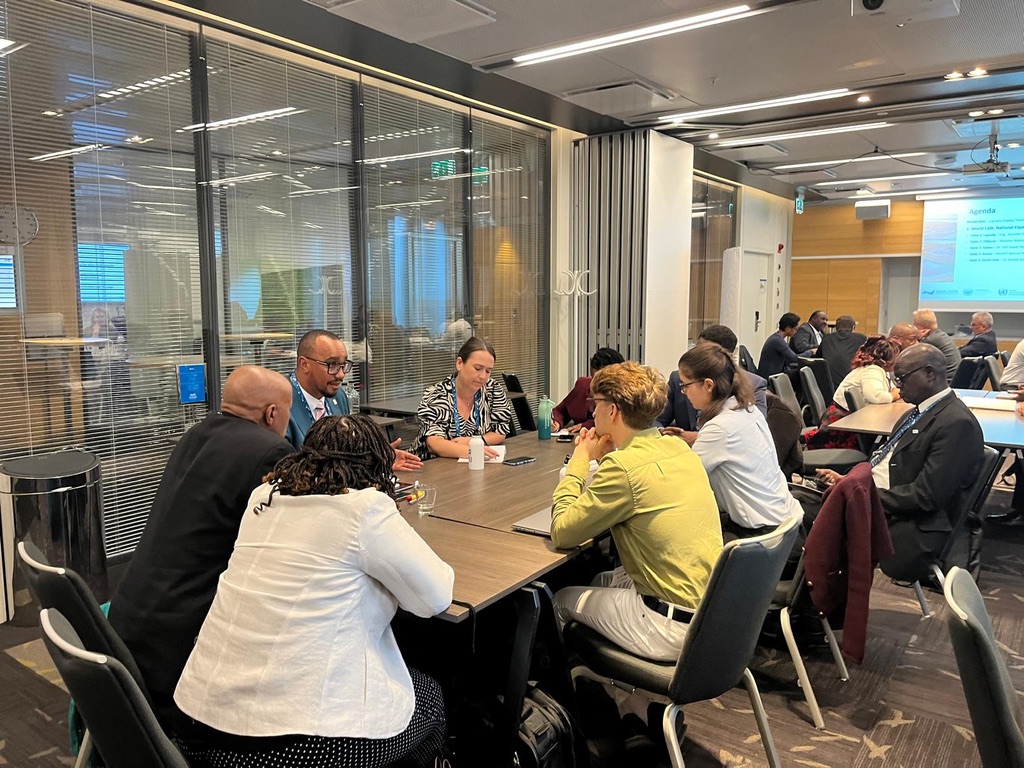
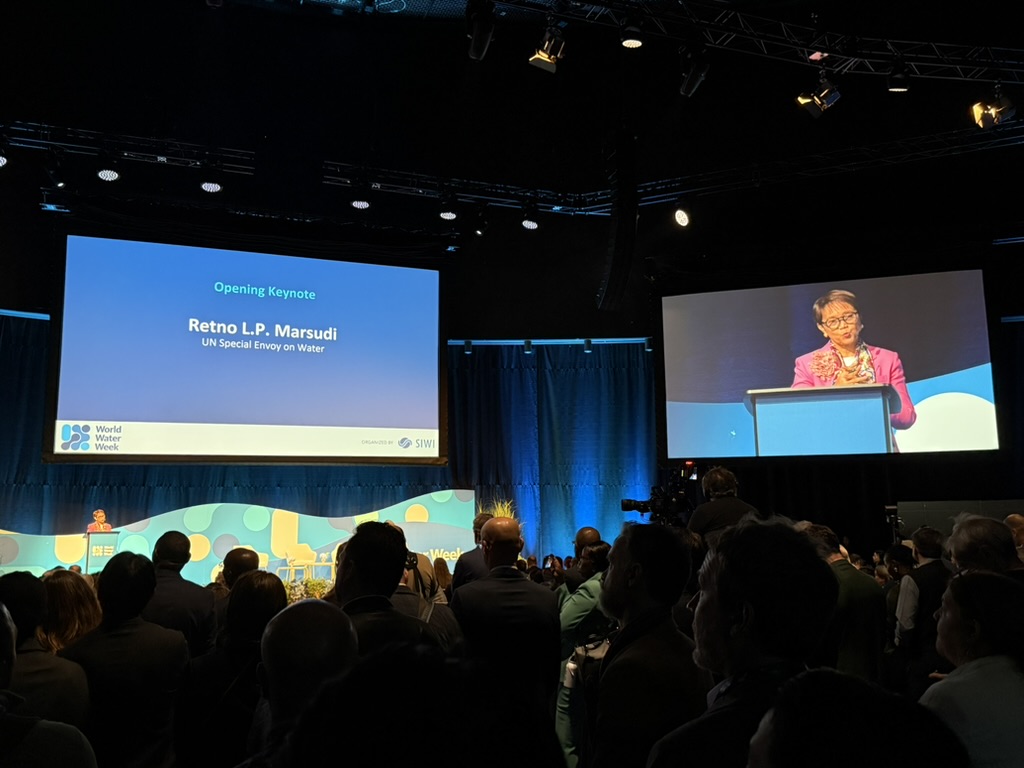
Stockholm, Sweden, August 25 - 28, 2025
The Sahara and Sahel Observatory (OSS) took a leading role at the 2025 edition of Stockholm World Water Week (SWWW), where it spotlighted its flagship project DRESSEA – Strengthening Drought Resilience for Smallholder Farmers and Pastoralists in the IGAD Region. The week underscored OSS’s commitment to addressing the drought–water nexus, where climate change, water security, and livelihoods converge.
OSS’s Division Head for Projects and Programmes Development and Strategic Partnerships, Mr. Reuben S. Muhanji, contributed to the high-level session “Drought Resilience in Action: From National Planning to Implementation.” He presented OSS’s work in supporting drought planning and early warning systems across Djibouti, Kenya, Sudan, and Uganda, demonstrating how DRESSEA blends policy support with community-based resilience.
The session was enriched by country representatives from Uganda, Djibouti, Sudan, and Kenya, alongside comparative insights from South Asia. Their contributions showcased national drought realities, the progress of National Drought Management Plans (NDMPs), and key lessons from embedding science, risk analysis, and stakeholder dialogue into planning. Together, these exchanges reinforced the importance of linking national strategies to local realities – a core feature of DRESSEA.
In his remarks, Mr. Muhanji underlined the human dimension of resilience:
“When we give farmers and pastoralists the right information at the right time, we turn uncertainty into preparedness, and fear into resilience. As one pastoralist told me: ‘If I know the drought is coming, I don’t lose my animals — I move them.’ That is the power of planning.”
He noted that 46 million people were affected by the 2020–2023 Horn of Africa drought, underscoring why tools like DRESSEA are vital. “They are not just about forecasts,” he emphasized. “They are about saving lives, protecting livelihoods, and giving hope to communities who deserve it most.”
OSS co-led the DRESSEA work sessions with GWPO at the GWP offices in Stockholm. The event reviewed the effectiveness of drought early warning systems and explored how multi-stakeholder platforms can better connect water management, food security, and climate adaptation. The discussions highlighted the drought–water–health nexus, stressing how improved water management directly enhances resilience while safeguarding human wellbeing.
Alongside formal sessions, OSS advanced its partnership agenda through bilateral meetings with UNEP–DHI, FAO, and IFAD, identifying opportunities to collaborate on drought risk management, integrated land and water governance, and scaling up resilience practices.
Through its contributions at SWWW 2025, OSS reaffirmed its leadership in advancing the drought–water nexus. By linking national drought planning with community-based action, and by engaging partners to expand the reach of DRESSEA, OSS continues to champion resilient solutions that protect ecosystems, safeguard livelihoods, and give hope to vulnerable communities across Africa.